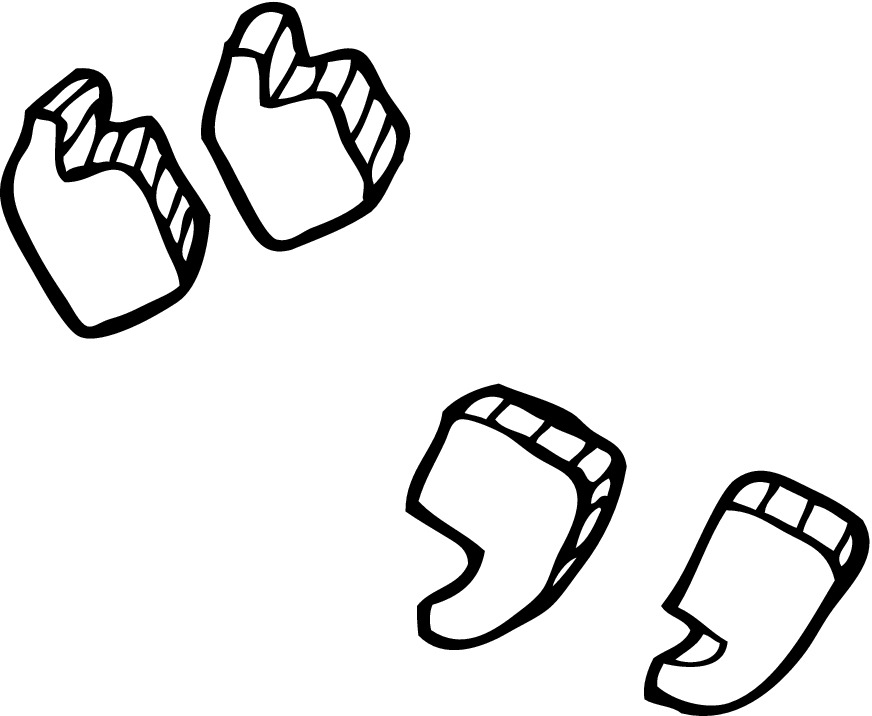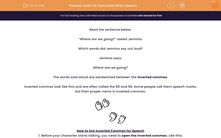Read the sentence below.
“Where are we going?” asked Jemima.
Which words did Jemima say out loud?
Jemima says:
Where are we going?
The words said aloud are sandwiched between the inverted commas.
Inverted commas look like this and are often called the 66 and 99. Some people call them speech marks, but their proper name is inverted commas.

How to Use Inverted Commas for Speech
1. Before your character starts talking, you need to open the inverted commas. Like this:
“
2. Then, you start with a capital letter and write the words that are spoken aloud.
“How was your day
3. After that, we must then put a piece of punctuation before closing the speech. Our choices are:
- Commas (,) - used if the person is saying a statement
- Question marks (?) used if the person is asking a question
- Exclamation marks (!) used if the person is shouting or exclaiming
In our sentence, the character is asking a question, so we put a question mark before closing the inverted commas.
“How was your day?”
4. Finally, we write a reporting clause which tells us who said the speech.
“How was your day?” asked Grace.

Asked is a much more exciting word to use than said. Using said doesn’t help us to understand how a character is speaking.
Here is a table of words you could use instead of said:
| added | replied | joked | stuttered | murmured |
| asked | answered | shouted | mumbled | roared |
| begged | explained | screamed | whispered | moaned |
Which word could best replace said in the reporting clause below?
“I don’t want to go to homework club,” said Paul.
It sounds like Paul is complaining, so we could use complained or moaned.
“I don’t want to go to homework club,” moaned Paul.
“I don’t want to go to homework club,” complained Paul.

Make sure the word you use instead of said matches the words being spoken by the character.
Look at the speech below.
What is missing? Use the list of instructions above to help you.
“What an awful film” shouted Max.
The writer has opened their inverted commas and used a capital letter.
They have closed their inverted commas and written a reporting clause.
But they haven’t put a piece of punctuation before closing the speech!
As Max is shouting, the best piece of punctuation to use is an exclamation mark (!).
“What an awful film!” shouted Max.
In this activity, you’ll be following these instructions to punctuate speech correctly. Remember to use more exciting words than said.








